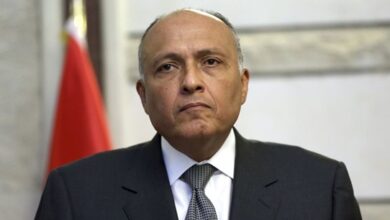
Draft articles proposed by the Constituent Assembly, the body drafting Egypt’s constitution, seek to guarantee that President Mohamed Morsy completes his four-year presidential term, some argue based on the latest version of the document.
In the chapter that deals with “Closing and Transitional Principles,” Article 227 states that, “the current president’s term will end after the passing of four years from the moment he was elected,” and that he cannot occupy this position for a longer period, except by election for a second term.
This comes at a time of mounting criticism by opposition political forces, who are calling for new presidential elections because, in the absence of a constitution, it was unclear what the president’s powers would be at the time of election. The latest draft, if passed, would safeguard against that.
George Ishaq, a Constitution Party leader, is amongst those critics who argue that Morsy’s presidency will become invalid after a constitution is ratified in a popular referendum. The former general coordinator of the Kefaya movement said in an interview with Al-Shorouk that for Morsy to continue his presidential term would be “against the constitution and the charters” because he was elected on the basis of the March 2011 Constitutional Declaration.
“When you write a new constitution, the political system changes […], and so do the president’s functions and provisions, so you cannot but repeat the elections,” he was quoted as saying.
However, Raafat Fouda, Constitutional Law professor at Cairo University, sees the draft articles as legitimate because “there is no constitutional or democratic basis to repeat the elections.” This is so, according to Fouda, because the electoral process was “constitutional and legitimate,” and people elected Morsy on the premise that he would be in office for four years. “Besides, the president will have fewer powers in the new constitution,” he says.
This means, he continues, that “from a purely constitutional basis, the Constituent Assembly did not need to add that text, but this will safeguard the stability of rule.” Those who call for new elections, says Fouda, cannot accept their loss and are “dreaming of power.”
The first Constituent Assembly was disbanded in April after a State Council Administrative Court ruling deemed it unconstitutional. The reason was that half of the assembly’s seats were filled by members of Parliament, who were authorized to choose the members of the assembly but not take the roles themselves, according to judges’ interpretation of the March 2011 Constitutional Declaration.
The current assembly, formed in June, contains 39 members of the now-dissolved Parliament and is therefore under threat of dissolution on the same basis. Lawsuits to that end are currently pending.
It seems criticism of the constitution-writing body is mounting with the disclosure of every new draft article. Critics see the assembly as an Islamist-dominated body that prejudices the outcome of Egypt’s constitution in favor of the Muslim Brotherhood, whose political wing, the Freedom and Justice Party, is the biggest contributor of members to the assembly. For this reason, assembly member Manal al-Tibi resigned last month.
Many, including opposition figures and rights organizations, have criticized the assembly for failing to guarantee freedom of religion and expression, in addition curtailing women’s rights. Human Rights Watch, in a letter sent to the Constituent Assembly, has called for revision of the draft for these reasons, as well as the assembly’s failure to clearly prohibit torture and human trafficking.




